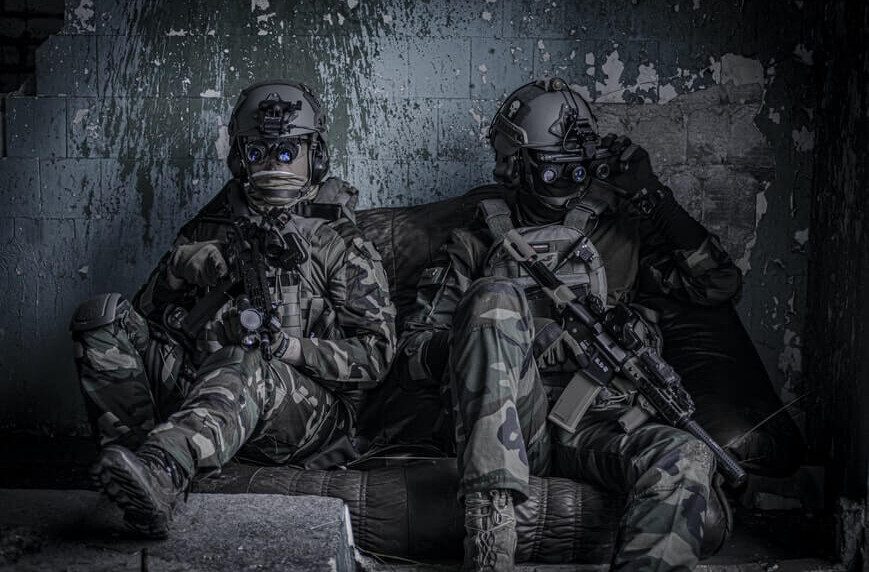
Military life can be both rewarding and taxing, often taking you to places around the world that many have never seen. But this life can also take its toll on your physical and mental health.
In fact, according to the National Council for Mental Well-Being, it’s estimated that around 30 percent of active-duty military personnel deployed to the regions of Iraq and Afghanistan suffer from some type of mental illness that requires treatment. Additionally, around 50 percent of recently separated veterans have mental health conditions but do not seek treatment.
Readjusting to civilian life can also be a difficult task for many returning veterans, and this can be made even more difficult if you’re affected by a physical or mental health issue.
So what do you do after the military? How do you cope with the “aftershocks” of serving?
Here, we’ll explore how veterans can turn to natural ways to alleviate stress and anxiety through the art of mindfulness.
Coping with Physical Disabilities

Men and women in the United States military both place themselves at risk for physical injury on a daily basis. This is especially heightened when in a combat situation, or in the war theater. And often our veterans come home with a range of physical injuries, from moderate to severe.
For example, 3M earplugs were issued between the years 2002 and 2015 to protect those in combat situations. These earplugs have been linked to hearing loss and tinnitus in veterans today, and many are considering filing lawsuits due to 3M earplug hearing loss.
Other, more serious conditions, such as the loss of limbs and spinal cord injuries can leave a veteran feeling like he or she has little options to live a full life. But through mindfulness and natural therapies, living a full life is possible.
Through mindfulness, you don’t focus on all the things you can’t do or wish you could do. Instead, the focus is placed on the things you can do, without judgment, and by trying new activities that give you a sense of fulfillment.
Depression

Due to the hostile environments that many military service members find themselves in, depression can manifest as a result of repeated exposure to horrific scenery and violent imagery.
And depression is a mental health issue that can become a lifelong battle if left untreated. Fortunately, one thing that has been proven to be just as effective as medication for treating depression is mindfulness.
Mindfulness doesn’t currently have a universal definition that everyone can agree upon, however, it can be easily explained. Essentially, mindfulness when applied to depression is the act of paying attention to your thoughts and feelings, recognizing them for what they are (whether positive or negative), and letting them pass without judgment.
This is basically the practice of training your mind to be cognizant of even the darkest thoughts while viewing them from a neutral perspective. Over time, through practice, you’ll be able to have better control over your thoughts and greater self-awareness.
PTSD
Perhaps one of the more well-known conditions that military service members face is Post Traumatic Stress Disorder (PTSD).
Often, this is a condition that may not be easily noticed at first, and it may take several years for a veteran to recognize the subtle symptoms of PTSD. More pronounced forms of PTSD include flashbacks, anxiety, stress, and confusion, and these can all be brought on by loud noises, violent movies, and even particular colors.
Though there are a variety of treatments and therapies for coping with PTSD, mindfulness therapies can also be highly effective.
Mindfulness therapies teach you to focus your thoughts and to deeply feel sensations and emotions as they happen in the present moment. Studies have shown that those who practice mindfulness on a daily basis can better break the connection between post-traumatic stress and maladaptive thought.
Dealing with health issues, whether physical or mental, and despite using conventional medicines and therapies, including getting help with several apps can be made much easier by practicing mindfulness daily. If you’re suffering from any of the above-mentioned conditions, consult your physician and ask about mindfulness therapy.
Read Also:




























